

Governor Pete Ricketts has recently made appointments to fill Nebraska’s boards and commissions, including Michael J. Miller to the Governor’s Council to Keep Nebraska Beautiful (KNB). This is Miller’s third term on the nonprofit’s Board of Directors.
Mike Miller is a Vice President and Project Director in SCS Engineers’ Omaha, Nebraska office. As an environmental due diligence expert, he provides environmental management and consulting to the private and federal sectors. These services help municipalities, businesses, and industries operate efficiently and cleanly. He develops and implements environmental health & safety programs and solutions at industrial facilities in the agricultural processing, chemical processing, distribution/transportation, metals, and pharmaceutical manufacturing sectors.
An avid outdoorsman, Mike is a big fan of the School Chemical Clean-Out program and is impressed that KNB has affected projects at hundreds of schools. There is a big need for technical and financial support, and this program provides both for schools large and small, urban and rural, public and private.
Miller has this to say about getting his start on the Keep Nebraska Beautiful Council in 2013,
A landfill client of mine got me involved with KNB through its annual golf event. As an environmental consultant to the solid waste sector, I was very impressed by and supportive of his and his company’s support of KNB and the Mission to ‘take actions to improve and beautify our communities’ to promote healthy environments to live, work, and play within.
Nebraska is making great strides toward cleaner, greener, and more beautiful places to live through Keep Nebraska Beautiful. The nonprofit coordinates events in the State of Nebraska, such as the Great American Cleanup, America Recycles Day, Recycle Bowl, and National Planting Day. This effective community partnership includes representation from the public, private, and civic sectors.
Over the years, local affiliates throughout the state have joined Keep Nebraska Beautiful as Keep America Beautiful affiliates. These include educational and community-improvement programs addressing local needs such as litter awareness, cleanups, beautification, reuse and recycling programs, and neighborhood revitalization.
Successful organizations like these are sustainable through the generous support of their members and supporters like Mike Miller and you. Join in, or see what’s happening in your community.
We’re proud of Mike and all the staff at SCS Engineers who serve our communities and clients.
The Solid Waste Association of North America (SWANA) recently featured Sam Rice of SCS Engineers in its monthly newsletter. Sam is a member of the SWANA Young Professionals (YP) group and also one of Waste 360’s 40-Under-40 winners this year.
Sam specifically focuses on developing remote monitoring and control (RMC), supervisory control and data acquisition (SCADA) systems, and control systems to meet his client’s environmental management needs. These technology solutions help the waste industry reduce environmental and health and safety risks, reduce cost, and improve the quality of life for workers in the industry and the communities surrounding our waste facilities.
The secret to his success is listening to the client’s needs and using technology to address those needs. Some specific ways that he has impacted the industry are below:
Sam takes on his client’s goals as his own, then develops and implements solutions. His approach is to attack any challenges with vigor, identify and act on ways to help improve things and jump in to help others when the need arises. His inquisitive mind helps him quickly identify and remedy issues that our clients are having; this helps keep their critical infrastructure online and operating at its highest capacity.
Sam routinely mentors others and helps his coworkers understand new technologies because he truly wants to see his coworkers and clients succeed. For example, a project he managed won two industry awards in 2020: an Environmental Business Journal Technology Merit Award and an Inductive Automation Firebrand Award which he shares with his client and coworkers.
SCS promotes leadership and ownership at every career stage, providing you with consistent opportunities to grow and learn. We offer an engaging and supportive environment, whether you’re interacting with senior leadership, out in the field with clients, or attending events.
Leading our YPs is the Young Professionals Planning Committee (YPPC), organizing and hosting educational and social events, providing mentorship opportunities, skills and leadership development, and much more.
As an employee-owned company, we know that ownership makes a difference. When you and I succeed, we all thrive. Hence, the YPPC strives to build technically savvy leaders and teams using in-house software, experts, and solutions. With an ever-growing environmental firm focusing on stewardship, we all play a role. Just like Sam!
Consider a career at SCS Engineers – click here!
SCS Engineers continues to expand and advance its team of environmental professionals in Northern California by welcoming Wendell L. Minshew, a licensed professional engineer specializing in civil engineering.
“As a highly-qualified addition to the team, Wendell will help SCS Engineers provide exceptional environmental service to our clients in Northern California,” said Ambrose McCready, Vice President with SCS Engineers. “His significant background in engineering strengthens our regional team, and helps ensure we meet and exceed client objectives.”
With more than 30 years of engineering experience, Minshew specializes in leading the design, planning, permitting and construction management of solid and hazardous waste facilities. He obtained his Bachelor of Science in civil engineering from CSU Fresno and is a licensed Professional Engineer in California, Nevada, Oregon, and Arizona.
SCS serves Northern California through our offices in the San Francisco Peninsula, Sacramento, Oakland, Modesto, Santa Rosa, and Pleasanton. See our nationwide locations.
Duluth, GA – SCS Engineers, a leader in environmental and solid waste engineering, recently relocated from Alpharetta to a larger, more strategically located office in Duluth, Georgia. The new office supports SCS’s continued development in the Southeast, our client success-driven growth, and accommodates our growing professional staff.
SCS is always on the lookout for talented senior level professionals in the environmental consulting community. The Atlanta Environmental Services (ES) group is seeking experienced, humble, hungry, and smart senior level consultants with client relationships and business development capabilities to join our team.
SCS Engineers – Atlanta
3175 Satellite Blvd
Building 600, Suite 100
Duluth, GA 30096
(678) 319-9849
If you are interested or know anybody who is interested, reach out to . You may also review our open positions on the SCS Careers Page.
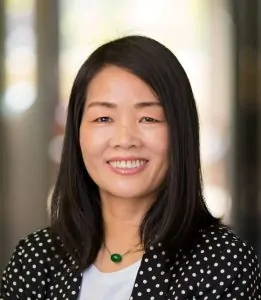
Fangmei Zhang, P.E., PhD, is a Senior Project Manager in the Miami Office of the Southeast Region. She has 13 years of experience in the environmental and civil engineering field, with 7 years at SCS Engineers. Fangmei received her Bachelor of Science degree from Southeast University (China), her Master from Tongji University (China), and PhD from Case Western Reserve University (Ohio), all in Environmental Engineering.
At SCS, Fangmei manages assessment, remediation, and redevelopment projects for some of our largest clients. Fangmei is also a founding member of the SCS Technical Advisory Group, a newly created group of staff who serve as technical advisors on environmental projects. She also leads the region’s Environmental Services Technical Committee. The intent of this committee, which is comprised of a group of environmental leaders through the region, is to foster a forum for the identification, evaluation, and implementation of new and emerging technologies to enhance technical excellence and to facilitate SCS’s growth as a leader in the environmental engineering and consulting field. Fangmei is also a founding member of the Southeast Region’s SCS Women, a group recently created to provide mentorship and support to empower women to achieve career and personal success.
Fangmei was born in a remote village in east-central China. Growing up in the countryside, Fangmei has unforgettable memories of being close to nature. As a child, she learned how to plant rice in rice paddies, to work with cotton and hem fields, and to plant vegetables. She picked wild vegetables to feed pigs and collected chicken droppings to use as organic fertilizer using tools hand-made from bamboo sticks and river mussel shells. The country life she enjoyed as a child forged her love of nature.
Fangmei also loved going to school. At the time, she was the only girl who attended the village school, and she walked several miles each day to earn her education. After the fifth grade, she continued her education in Jingzhou, Hubei province, where schools were more competitive and provided better prospects for going to college. Eventually, she completed her BS and MS in China. In 2001, she came to the United States for further study, partly because environmental engineering in China did not yet address soil or groundwater contamination. She received her PhD in 2006 with research focusing on bioremediation.
Fangmei chose to come to the U.S. to study because she also loves to travel and see the world. She enjoys traveling to new places and learning about different cultures. She also loves visiting botanical gardens and farms. During her trip to Laos two years ago, she saw poor villages and little girls running around without shoes in the countryside, and it reminded her of her own childhood. Influenced by a friend and her experiences, Fangmei has provided financial support and assisted in other fundraising to help build schools in the villages in Laos and Cambodia, with the hope of providing these children with opportunities for a better future.
To learn more about a career with SCS Engineers, please visit the SCS Careers page.
SCS Engineers presents a behind-the-scenes look at the special people who make us thrive and the roles they play within the organization.
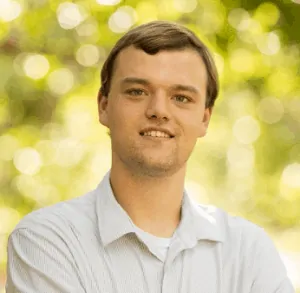
As Ryan Duckett was growing up in the mountains of western North Carolina, he knew he wanted a career in a field that was related to nature. That, combined with the fact that he enjoyed math and science in high school, led Ryan to majoring in Environmental Engineering at North Carolina State University. As an engineering major, Ryan enjoyed an internship at EREF (Environmental Research & Education Foundation) in their research program. The connections he made at EREF led to his first job out of college in August 2014 as an Associate Professional at the Richmond office of SCS Engineers.
Now well into his third year at SCS, Ryan is a Project Professional while simultaneously obtaining his MBA at VCU (Virginia Commonwealth University) with the help of SCS’s tuition reimbursement program. At SCS, Ryan started to fill role in the Sustainable Materials Management (SMM) division of the Richmond office. His average day consists of business development in a growing sector of work. Ryan comments, “There is a lot of opportunity in the SMM realm right now. I do a lot of work for municipalities for their recycling systems, collection systems, and financial systems.”
Ryan’s position at SCS is especially unique as he enjoys a mix engineering work and business development. His engineering work covers his design work at collection centers, landfills, and landfill gas systems. His business development work covers financial analyses he completes for SCS’ clients. When asked to describe that work, Ryan said “I basically compile background info and background financial info and use that information to project future cash flows for a time range like 10 to 20 years. A lot of factors can influence those projects that have to do with different logistical measures. For example, a transfer systems liability depends on how far you are transferring waste. This goes hand in hand with my MBA studies. The financial and accounting skills that I’m learning at school definitely contribute to the practice. I think engineering surprisingly has a nice synergy with finance because with engineering you understand the operations side and being able to combine that with the way financial analysts assess problems is really valuable.”
For future SCSers, Ryan has some words of wisdom: “at SCS, you really have the ability to make major positive change in the sense that we are a major force in the implementation of more sustainable practices in the industry. Before joining I didn’t really realize the full role of the consultant in the process. Working with a wide range of clients over a wide range of disciplines allows for a perspective that is harder to obtain in an in-house or governmental setting. Also, don’t be afraid to reach out. As a national company, SCS has a lot of resources for young professionals. There is a lot of expertise to draw from.”
Ryan sees no end to his future at SCS Engineers. He enjoys the fact that as young professional, he has the opportunity to develop of lot of subject area protocols and resources within SMM. He has room to create his own way and Ryan believes it is important to create your own way with all the dynamic changes in the industry right now. Ryan states “I really like the entrepreneurial spirit of the company. It allows for a lot innovation and creativity especially in the SMM practice because we’re still defining it. I really like the employee ownership aspect, I think it goes hand in hand with the entrepreneurial spirit. The ESOP has done a lot of good things for the company and culture. It’s cool to have the umbrella of resources of one of the most qualified solid waste firms in the country. I would like to take SCS to whatever is society’s next step in solid waste, my contribution is a fresh perspective and I’m really looking forward to the future.”
To learn more about a career at SCS Engineers, please visit our SCS Careers page.
SCS Engineers presents a behind-the-scenes look at the special people who make us thrive and the roles they play within the organization.
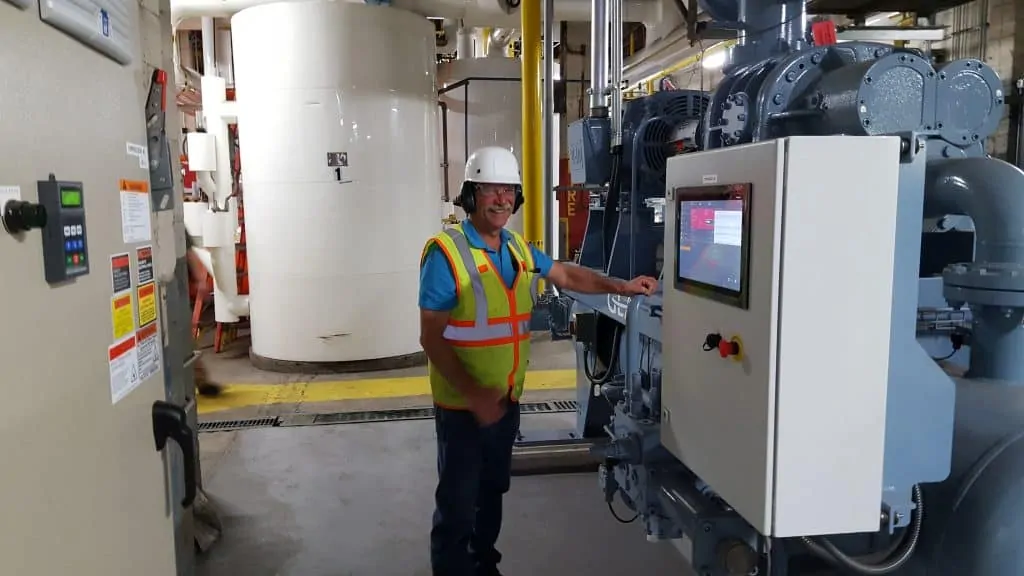
Gene Dumas joined SCS Engineers in 2015 as a Project Manager for the Risk Management
group with a thirty-year background in the ammonia refrigeration business. When asked what attracted Gene to SCS, he said “What SCS Tracer did is what I’ve always wanted to do. SCS Tracer has the passion for making the ammonia industry safer. SCS goes out of the way for customer service. Ammonia refrigeration is a very dangerous industry and what separates SCS from other companies is the commitment to safety.” For years, Gene has known Lee Pyle, Vice President and Project Director for SCS Engineers, within the ammonia refrigeration field and when he met her team at SCS, “I was blown away with their intelligence and passion. They are super smart and a good group. Lee put together a hell of a team.” Considering all those factors, it was an easy decision to join SCS Engineers.
Outside of SCS, Gene has been a member of the Refrigerating Engineers & Technicians Association (RETA) since 2004. RETA is a refrigeration organization with a mission statement to enhance the professional development of refrigerating engineers and technicians. Gene states “it’s basically the education sector of industrial ammonia refrigeration. We train, develop and certify the people who are actually working in the facilities operating systems.”
Eleven years after becoming a member, Gene was sworn in as a national president on October 1st, 2015 and was president for the 2016 year. Presently, he is a chairman for RETA and on his last year on the RETA National Board of Directors.
At SCS, Gene considers one of his greatest achievements is mentoring the newer generation to understand their industry better. “I think my mission in life is to mentor. Mentoring the younger people that are coming in, putting them under my wing, it’s very rewarding, intrinsically rewarding.” Gene comments, “I want to pass my knowledge to the next generation because we’re losing our skilled craftsman. It’s very critical that we train. A trained operator is #1: safe and we need more of them.”
For current and future SCS employees, Gene offers this piece of advice: “I came here because I wanted new challenges and wanted something new every day. The minute you 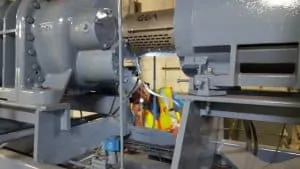
SCS Engineers is currently looking for a Senior Professional to add to our Risk Management Ammonia Refrigeration team. For more details visit the SCS Engineers Careers Page or click here to apply directly.
SCS Engineers presents a behind-the-scenes look at the special people who make us thrive and the roles they play within the organization.
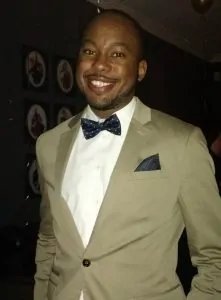
Roger Hogg has been with SCS Engineers since 2010 as an engineer working on Solid Waste projects. However, his career in the Solid Waste industry actually began when he was still in college. During senior year at the University of Florida as a Biological Engineering major, Roger obtained an internship with a local municipality in their Solid Waste department. At the time, he still didn’t know what he wanted to do with his career but he found the projects that he worked on to be fascinating. The projects ranged from agricultural waste management to landfill gas energy and Roger knew what he wanted to do with his career.
Roger started in the SCS Tampa office and now works at the SCS Atlanta office where his project work ranges from landfill gas field system design to air compliance reports. When asked what his favorite part of working at SCS is, Roger replies:
“The flexibility and opportunity to work with people in the other SCS offices, the culture and the quality of people. SCS values the culture of inclusion. SCS is truly a team, we definitely try to help each other out. We cross the lines of expertise to deliver a good product to the client. We try to help each other succeed. ”
Not to say that Roger did not face some challenges: he remembers that the transition from being a staff engineer to a senior role and handling the pace of the consulting took some time to adjust. He remembers that challenge and he takes his role as a mentor to the newer generation at SCS very seriously. With new hires, he makes himself available to mentor them in the technical aspects of the job we well as to make sure they are taking advantage of the family culture at SCS.
He believes the best advice he can give to future SCSers is:
“Be a sponge, absorb as much knowledge as you can. Keep your eyes wide open and always try to improve yourself.”
He also advises to focus on producing a really good product and satisfy the needs of your clients as he attributes that greatly to his own success at SCS.
If you would like to join a team oriented, client success driven company like SCS, please visit the SCS Careers Page for all of our available job openings.
Waste Management & Research, August 1, 2016,
Authors:
Ravi Kadambala, SCS Engineers, Boca Raton, FL
Jon Powell, Gainesville, FL, USA
Karamjit Singh, Jacksonville, FL, USA
Timothy G Townsend, Gainesville, FL
Vertical liquids addition systems have been used at municipal landfills as a leachate management method and to enhance biostabilization of waste. Drawbacks of these systems include a limitation on pressurized injection and the occurrence of seepage. A novel vertical well system that employed buried wells constructed below a lift of compacted waste was operated for 153 days at a landfill in Florida, USA. The system included 54 wells installed in six clusters of nine wells connected with a horizontally oriented manifold system. A cumulative volume of 8430 m3 of leachate was added intermittently into the well clusters over the duration of the project with no incidence of surface seeps. Achievable average flow rates ranged from 9.3 × 10−4 m3 s−1 to 14.2 ×
10−4 m3 s−1, which was similar to or greater than flow rates achieved in a previous study
using traditional vertical wells at the same landfill site.
Read the entire white paper here…
Question: I have a small oxidation event at my landfill and am continually testing for carbon monoxide (CO) in the surrounding landfill gas (LFG) extraction wells. Using colorimetric tubes, I am monitoring the readings which range from 5-10 parts per million (ppm). Is there an accepted standard for background carbon monoxide in LFG? Moreover, how much inaccuracy is expected using the colorimetric tube testing?
Answer: Carbon monoxide (CO) can be found in small quantities even when there is no landfill fire. If your concern is landfill fire, most reputable resources state that a landfill fire generates readings of at least 100 ppm CO and more typically in the 500-1000 ppm range with 1000 ppm a reliable indicator that a landfill fire event may be present.
CO readings on colorimetric tubes are inherently less accurate and tend to run higher than laboratory results. Colorimetric tubes do provide value as a real-time indicator versus subsequent lab results, and can be used as an index reading, calibrated by lab results later. If you’ve had a landfill fire event before, with CO levels greater than 100 ppm, the lab confirmed 5-10 ppm CO could be residual left over from the earlier event.
Although some people believe that the presence of CO at almost any level is an indicator of landfill fire, recent laboratory tests show that CO can be generated at values up to and over 1000 ppm by elevating refuse temperatures without the presence of combustion (fire). Other tests have shown that high values of CO are found in some landfills with no current landfill fire and no indication of a past landfill fire. This information supports that it is possible that Elevated Temperature (ET) Landfills can have CO levels over 1000 ppm CO without the presence of combustion or landfill fire.
In the end, CO can be an indicator of landfill fire, but not always, as described here. Low methane, high carbon dioxide, and even landfill temperatures above 131 degrees F may or may not be indicators of past or current landfill fire. Physical indicators of a landfill fire may include rapid settlement in a localized area, cracks and fissures, smoke and flame, melted landfill gas system components, and char on the inside of LFG headers and blower/flare station components such as a flame arrester. However, most of these indicators can occur at ET landfills as well without the presence of fire or combustion.
A professional landfill gas engineer is needed to assess these conditions as a whole, and make a judgment on the underlying driver, condition, and resolution.
Have a question for our SCS Professional Engineers or Field Staff? Just ask here.
Landfill and Landfill Gas Services at SCS Engineers.